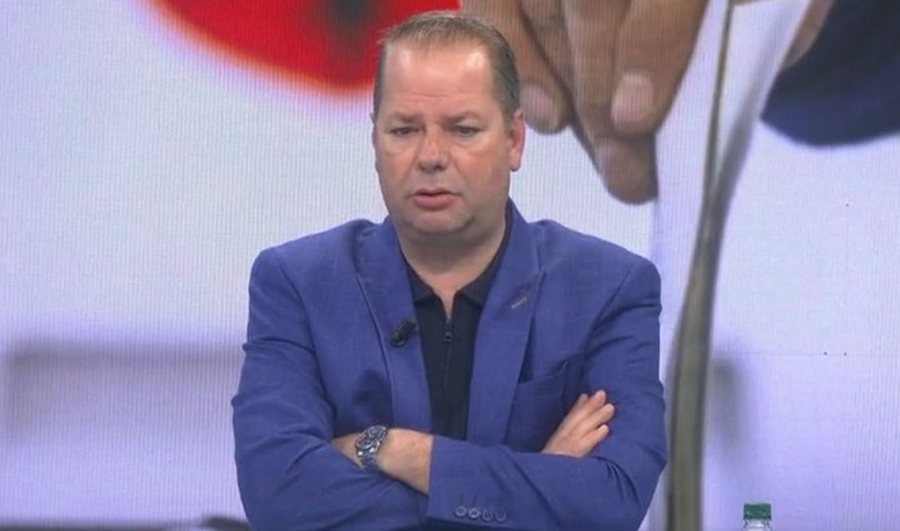
By Edvin Kulluri
In just a few months, French President Emmanuel Macron has clashed twice with the new American leadership over two conflicts that have ignited the world. That of Ukraine-Russia and Hamas-Israel. The first time with Trump's return to the Oval Office, at a time when the American president began efforts to bring Zelensky to the negotiating table, Macron returned to the rhetoric of supporting Ukraine to defeat Russia militarily. As a reminder of the now outdated liberal-globalist thesis aimed at spreading democracy and the free market in China and Russia, Macron insisted that Russia must be defeated at all costs, since it did not embrace the West peacefully. At the time, Vice President Vance reminded Macron that if it were not for the US, Europe would speak German. Which meant that it was precisely the Americans who defeated Hitler's Germany in World War II. For the sake of truth, with the help of the Soviet Union.
The second case, which is even more challenging, was Macron's statement after the Americans withdrew from the negotiations between Israel and Hamas, that France would recognize the Palestinian state. A statement to which Trump responded by saying that "Macron is a good guy, but his statements are weightless". And by the word "weightless", Trump means "power", which in international relations from a realist or conservative point of view is a fundamental principle. And especially when the order of international law is suppressed by force or, as Hobbes tel Leviathan puts it in other words, the chaos that creates the need for hegemonic power. Something that France has not had since Bonaparte, who led an empire. Since World War II, the Western world has only had one superpower or quasi-empire, the USA. That's it.
But in both cases there is more than “power” to discuss the powerlessness of Macron’s France in the international arena. Of course, France is an important country with its own indisputable weight, but from this status to challenging the US on the issue of Ukraine and Palestine, there is an insurmountable gap, which can only be overcome with the nostalgia of an empire that is no longer there! First, Macron does not see that behind his back, public opinion in both Europe and America is not ready to enter into a war for 20% of the Ukrainian territory occupied by Russia. Second, most EU and NATO governments are not ready for this scenario. And even worse, it is enough for the US administration to disagree for Macron’s rhetoric to remain just rhetoric and nothing more. But war can be started with words, but it is won with weapons!
But the French position becomes even more confusing in the case of the Israel-Palestine conflict. A conflict that began with the Hamas attack on October 7, 2023, with 1,300 Israeli civilian casualties. An attack clearly instigated by the Iranian Ayatollahs' regime, as a challenge to the China-Russia-Iran axis against the world order dominated by the US. Of course, Israel's reaction has been disproportionate, but because Israel's power is not proportional to that of Hamas. Even together with that of Hezbollah, Houthis, Assad and Iran together. The second mistake has to do with which Palestinian state does Macron want to recognize? Because the situation in Palestine is politically and institutionally unclear for such seemingly clear verdicts from the French president. In the West Bank, the Palestinian Authority leads, which has no hand in or connection with the October 7 event. While in Gaza, where the conflict is being consumed, Hamas, which has been designated a terrorist organization, leads. Therefore, this conflict, which according to Israel will end with the destruction of Hamas, which still holds dozens of Israeli citizens hostage, does not need to be resolved by the French confusion that apparently arose from the need for unjustified and not very reasonable protagonism. As for power, Macron should not forget that French planes ran out of fuel in flight, in the Libyan conflict of the Arab Spring. And it was precisely American tanker planes that supplied them in the air, preventing the attack on Gaddafi from turning into a parody of the former empire.
2300 years ago, Thucydides, or the first theorist of international relations, wrote in his book “The History of the Peloponnesian War” that “big countries do what they want, while small ones do what they must”. Therefore, the role of states in conflicts or the international arena is inextricably linked to power. And since, since the Suez Canal crisis of 1956, England and France without the US could not find a solution, it should have been clear that the former empires had to accept the new reality. The Western hegemonic power is the US. Nostalgia, desires or intellectual dreams of “Kant's perpetual peace” are simply illusions but not mechanisms for resolving conflicts or establishing international order. (A2 Televizion)











